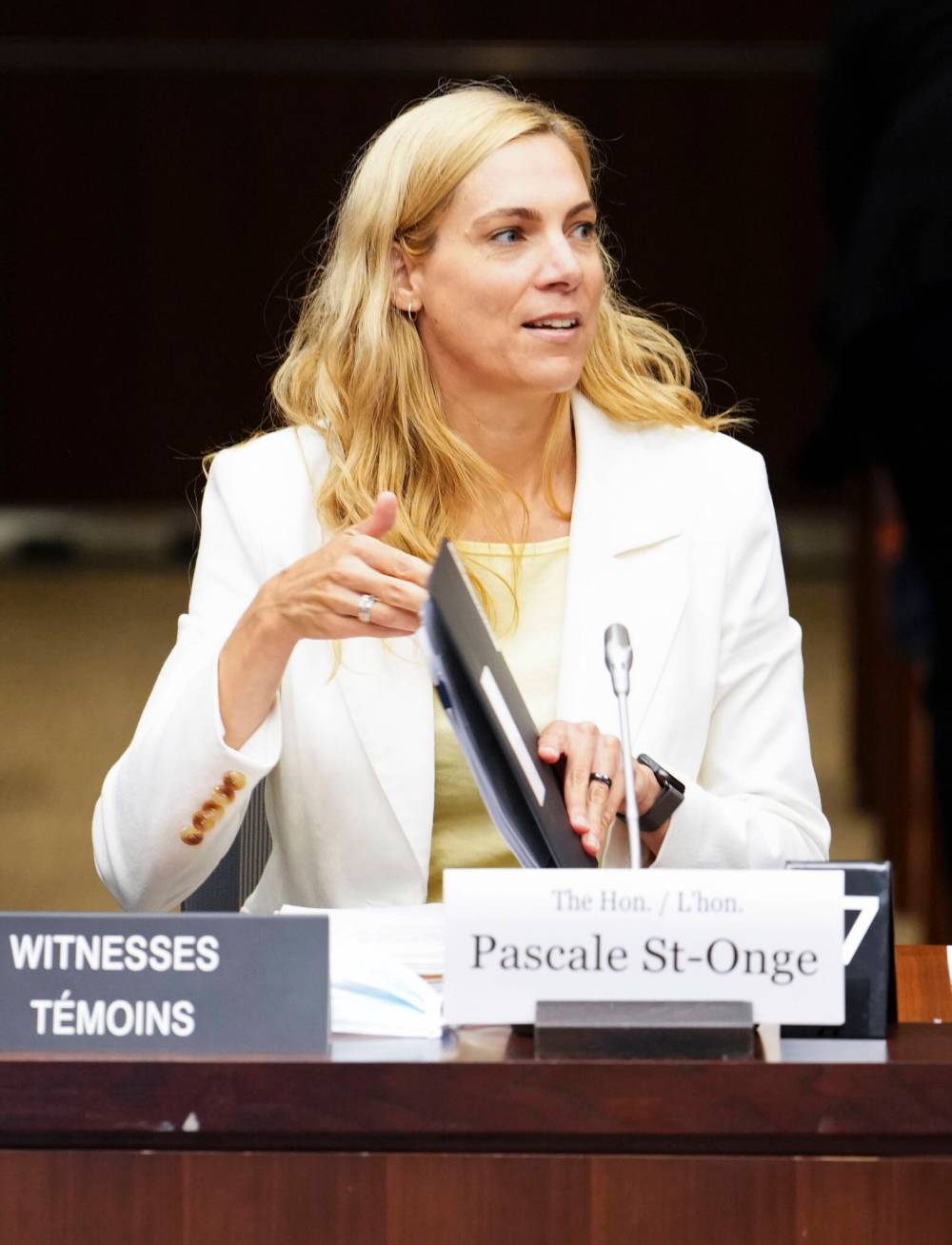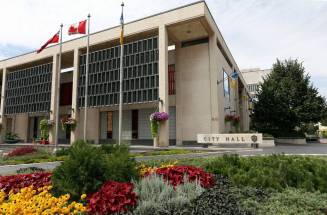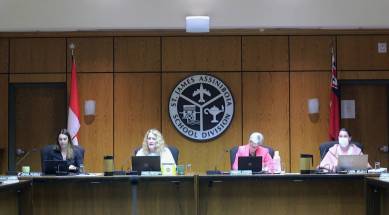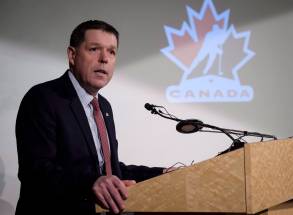New chapter begins for Hockey Canada
Read this article for free:
or
Already have an account? Log in here »
To continue reading, please subscribe:
Monthly Digital Subscription
$0 for the first 4 weeks*
- Enjoy unlimited reading on winnipegfreepress.com
- Read the E-Edition, our digital replica newspaper
- Access News Break, our award-winning app
- Play interactive puzzles
*No charge for 4 weeks then price increases to the regular rate of $19.00 plus GST every four weeks. Offer available to new and qualified returning subscribers only. Cancel any time.
Monthly Digital Subscription
$4.75/week*
- Enjoy unlimited reading on winnipegfreepress.com
- Read the E-Edition, our digital replica newspaper
- Access News Break, our award-winning app
- Play interactive puzzles
*Billed as $19 plus GST every four weeks. Cancel any time.
To continue reading, please subscribe:
Add Free Press access to your Brandon Sun subscription for only an additional
$1 for the first 4 weeks*
*Your next subscription payment will increase by $1.00 and you will be charged $16.99 plus GST for four weeks. After four weeks, your payment will increase to $23.99 plus GST every four weeks.
Read unlimited articles for free today:
or
Already have an account? Log in here »
Hey there, time traveller!
This article was published 12/10/2022 (1153 days ago), so information in it may no longer be current.
“Inevitable” and “overdue” are the most commonly applied descriptives to Tuesday’s announcement that Hockey Canada’s chief executive officer has departed the organization and its entire board of directors has resigned.
What’s confounding to the rest of the country is why it took so long for the people directly involved to accept the reality that their time with hockey’s national governing body had necessarily come to an end.
Elected officials — up to and including the federal sport minister and the prime minister — had called for the removal of the CEO and board. Provincial hockey organizations (eventually, and some reluctantly) agreed. And in rapid and decisive succession, the major corporations that have been Hockey Canada’s marquee sponsors — including Nike, Tim Hortons, Scotiabank, Chevrolet, Telus, Esso, Canadian Tire, Sobeys and equipment sponsor Bauer — either paused their financial commitments or ceased their support of the national men’s hockey program in reaction to the governing body’s mishandling of sexual-abuse complaints and settlements.
And yet, until Tuesday, Hockey Canada’s leadership remained outwardly steadfast in the assertion that they were the right people to steer the organization through what will be a process of massive but necessary change.
At issue, as everyone by now knows, is the manner in which Hockey Canada has dealt with serious allegations of sexual assaults committed by junior-age players, including many who were at the time members of the national team that represents Canada at the World Junior Hockey Championships (some of whom have reportedly gone on to lucrative professional careers).
First came reports of an incident in 2018, after which a young woman complained of having been sexually assaulted by several players after a Hockey Canada fundraiser in London, Ont., and the revelation last spring that Hockey Canada had used funds from its National Equity Fund, maintained by fees collected from minor-hockey players and families across the country, to settle a $3.55-million lawsuit filed by the woman in question.
Other revelations followed — about previously unreported incidents and settlements, and about the existence of a second pool of money called the Participants Legacy Trust Fund, earmarked “for matters including but not limited to sexual abuse” — and calls for across-the-board changes were not far behind.

Despite the continuing disclosure of damning information and increasing calls for a wholesale housecleaning at the organization, Hockey Canada leadership defiantly maintained, right up until the resignations, that theirs was the right group to lead the governing body through an exercise of massive but necessary change.
What seemed to elude now-former CEO Scott Smith and Hockey Canada’s board was that the aforementioned change must start with new leadership, top to bottom.
Minister of Sport Pascale St-Onge said a re-envisioned Hockey Canada “must develop not only exceptional athletes, but also good citizens who respect women, the public and the law.” She added new leadership must provide “better support and training for players and an environment exempt from sexual violence and discrimination.”
Now that the penny has finally dropped for Hockey Canada’s newly departed executives, the long and sure-to-be-painful process of redefining and redirecting hockey governance can begin.
It won’t be easy. Trust, badly shattered, must be rebuilt. It will take time, and it will require action that demonstrates a seismic shift in attitude and priorities.
As Tim Hortons spokesperson Michael Oliveira said in response to the mass resignation, “We will not consider reinstating our support for Hockey Canada’s men’s programming until we’re confident that progress is being made and Canadians once again believe in the organization’s leadership and its ability to do what’s right for the game we love.”









